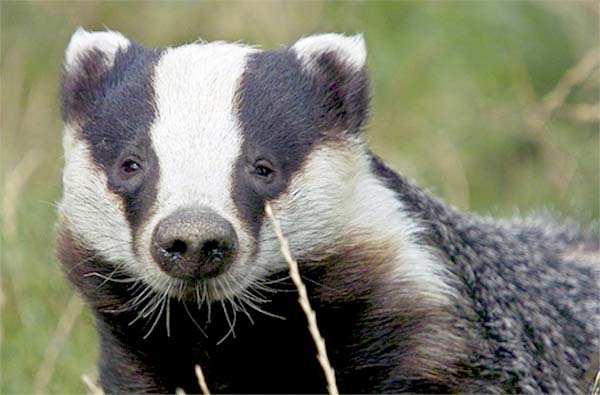
The Hampshire and Isle of Wight Wildlife Trust will begin staff training in August and September to prepare for a programme of badger vaccinations on its nature reserves.
The Wildlife Trusts believe that biosecurity and vaccination should be at the centre of efforts to tackle bovine tuberculosis (TB) rather than a badger cull, which is designated to continue this year in a series of pilot programmes.
"We have already engaged with a highly respected vet to help us approach this complex issue in the best possible way. In the near future we will start buying all the equipment that we need" said the trust.
"Badgers are a much loved part of our countryside but they play a role in the spread of Bovine tuberculosis (bTB). The Environment Secretary, Owen Paterson, announced on 26 January 2013 that pilot badger culls will go ahead in Somerset and Gloucester starting in June this year. The cull aims to kill 70% of badgers within the target area.
"A vaccine is available to inoculate badgers. Vaccinating badgers can significantly reduce bTB without the disruption of a cull. In a veterinary field study, vaccinating wild badgers resulted in a 74% reduction in bTB. In comparison, culling trials have shown that shooting 70% of wild badgers might reduce bTB cases by just 12-23% over 9 years– and increase cases of bTB on the outskirts of cull zones."
A plan to rid England of bovine TB within 25 years was set out by Environment Secretary Owen Paterson earlier in July.
The strategy sets out action in areas such as disease surveillance, pre- and post-movement cattle testing, removal of cattle exposed to bTB, tracing the potential source of infection and wildlife controls including culling and vaccination trials.
It also focuses on the development of new techniques such as badger and cattle vaccines and new diagnostic tests that could one day offer new ways of tackling the disease.
Launching the strategy Mr Paterson said: "28,000 otherwise healthy cattle were slaughtered last year because of bovine TB. Today we start a countdown towards an England free from this terrible disease. We must stop bTB spreading into previously unaffected areas while bringing it under control in places where it has taken hold. I have visited Australia, New Zealand, the Republic of Ireland and the USA and we must learn from their successful TB eradication programmes."
"Bovine TB is the most pressing animal health problem in the UK. It threatens our cattle farmers’ livelihoods and our farming industry as well as the health of wildlife and livestock. We must all work together to become TB free within 25 years."
Farm groups and veterinarians welcomed the Government's TB strategy, the NFU said it should 'herald a fresh start in managing animal dieases' but the CLA said it was vital Defra works closely with landowners.
NFU President Peter Kendall said: “Owen Paterson committed to publishing a TB eradication strategy at NFU Conference in February and the publication of this document today is very significant for all cattle farmers. On balance, we think it is an ambitious and comprehensive package to deal with this terrible disease which is devastating the lives of tens of thousands of farmers and their families, and destroying farming businesses, every year.
“The strategy reflects the fact that a full range of cattle and wildlife measures will be needed. It also recognises the importance of a risk-based approach that puts the ability to trade responsibly at the heart of cattle controls to minimise risks of disease transmission while allowing businesses to continue to operate.
“The Government’s commitment to roll out a badger control programme to other TB High Risk areas after the successful completion of this year’s pilot trials is vital and welcomed by the farming industry. Delivering on this is absolutely critical if we are to eradicate TB in cattle and badgers.
“For the Government’s strategy to succeed, it has to take the industry – farmers and vets – along with it. In England, the pilot culls show that farmers are prepared to contribute towards elements of a disease control package, where they can see a clear value from the contribution they make in terms of reducing levels of TB.
“We need to work with Government and farmers to look at how delivery of badger control from next year can be best delivered. Farmers will also want to see that Government has done everything it can to make current TB controls cost effective by addressing, for example, the costs of administration.
“But above all, I call on the Government to use this strategy to look at adopting a new governance model where farmers have a much bigger say in disease control policy. The strategy highlights the success in New Zealand where government and farmers have joint ownership of the plans to tackle bovine TB. Farmers have a much bigger say on the disease policy and they have seen a massive impact on TB as a result. New and innovative thinking is required with this most challenging of animal diseases.”
But the Hampshire and Isle of Wight wildlife trust said: "In light of the governments announcement we have brought forward the proposed start our badger vaccination programme and it will now commence in July this year. The programme will start with the trapping and vaccinating of badgers on our most at risk nature reserves."
